EDR Series : Function Re-casting (Part-2)

In this series of blog post, we will explore about function re-casting while exploring McAfee EDR.
While exploring the McAfee EDR we noticed that it loads few dlls into the process during process creation. Also, we found that these loaded dlls perform the task like loading libraries, resolving function address dynamically, writing in memory etc. which we are most interested in. So instead of doing all these things from scratch we could simply hunt for those function in these dlls and reuse them. First, we need to hunt those functions which might be useful for us. After reversing those dlls for a while we found the particular functions which allows us to load the library and get the function address at the same time. As we can see we can fully control those 3 parameters.
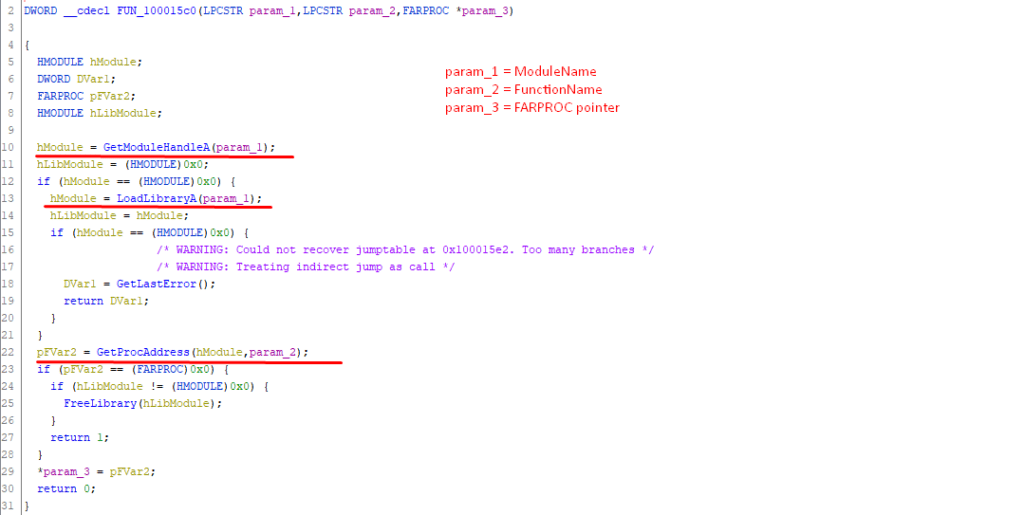
Param_1 = Module Name
Param_2 = Function Name
Param_3 = FARPROC Pointer
So, the above function tries to get the module handle with GetModuleHandleA function if the module is already there it’ll go and call GetProcAddress if not then it’ll load the module and call the GetProcAddress function. And this is exactly what we needed and we can control all those parameters freely😊. The above one was quite easy to control. However, this will not be the same for other functions. Few moments later we found the function which can create a user thread as well as the remote thread. In the following function we can control param_1, param_2, and param_3 as well as Global address of RtlCreateUserThread and CreateRemoteThreadEx.
Param_1 = handle
Param_2 = thread routine/function
Param_3 = parameters for thread function
If Global variable RltCreateUserThread is not set and CreateRemoteThreadEx is set it’ll call the CreateremoteThreadEx function and vice versa.
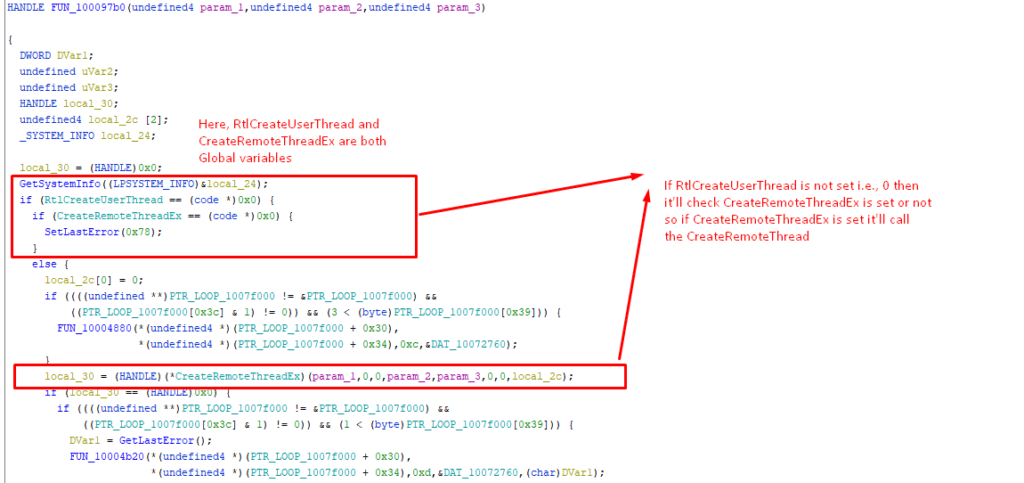

Now the only thing that is remaining is to control the global variable. Since global variables remains static at some offset, we can simply add those offsets with the base address of the module. RtlCreateUserThread = BaseAddress of mfehcinj.dll + 0x7fb44
CreateRemoteThreadEx = BaseAddress of mfehcinj.dll + 0x7fb50
So, we can simply copy the function address (RtlCreateUserThread/CreateRemoteThreadEx) in those global variables. If we set global address of the function that we want to run then we also have to zero out the another one.
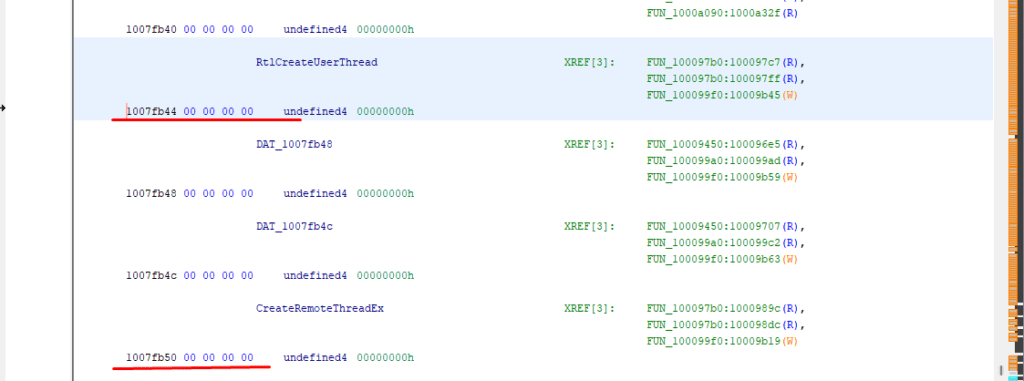
McAfee Status
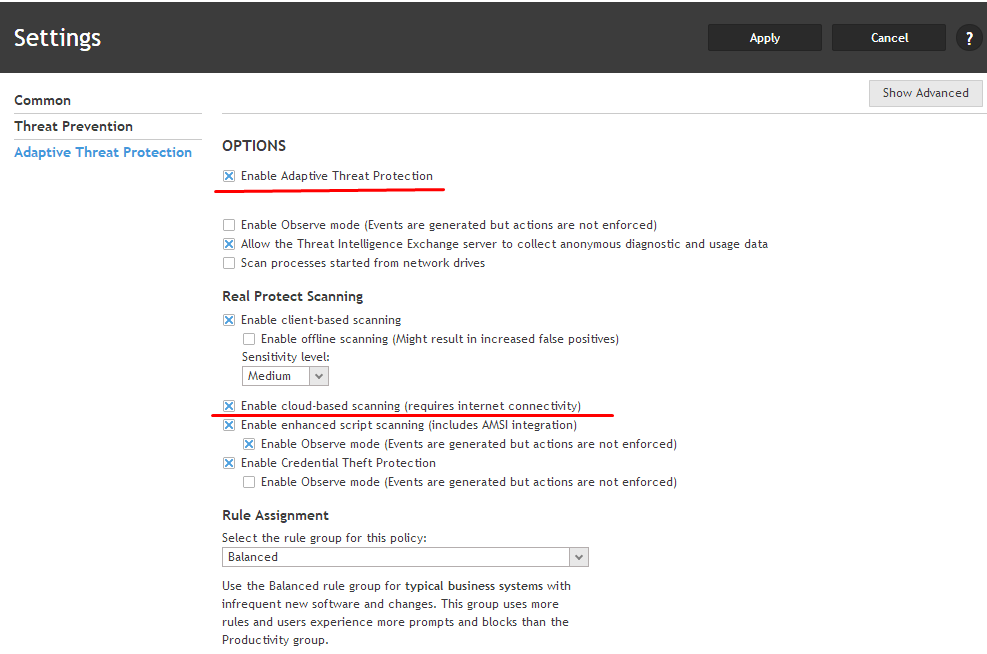
Local Shellcode Execution.
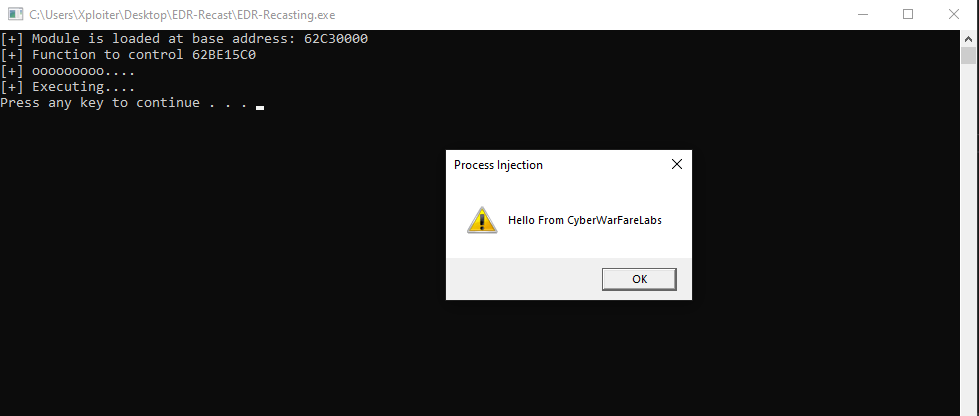
NOTE:
This is just a simple POC of utilizing the McAfee injected dll’s functions. This is specially crafted implant for McAfee environment only. It depends on a McAfee environment so analyst will have a hard time during static analysis of the binary if combined with string encryption. However, this technique has both advantages and disadvantages.
Hang tight for last series of this blog !
Author : John Sherchan, Red Team Security Researcher at CyberWarFare Labs
Yash Bharadwaj, CTO CyberWarFare Labs
Follow us on social media :
Stay connected with news and updates!
Join our mailing list to receive the latest news and updates of cutting-edge cyber security research from our team.
Don’t worry, your information will not be shared.

































